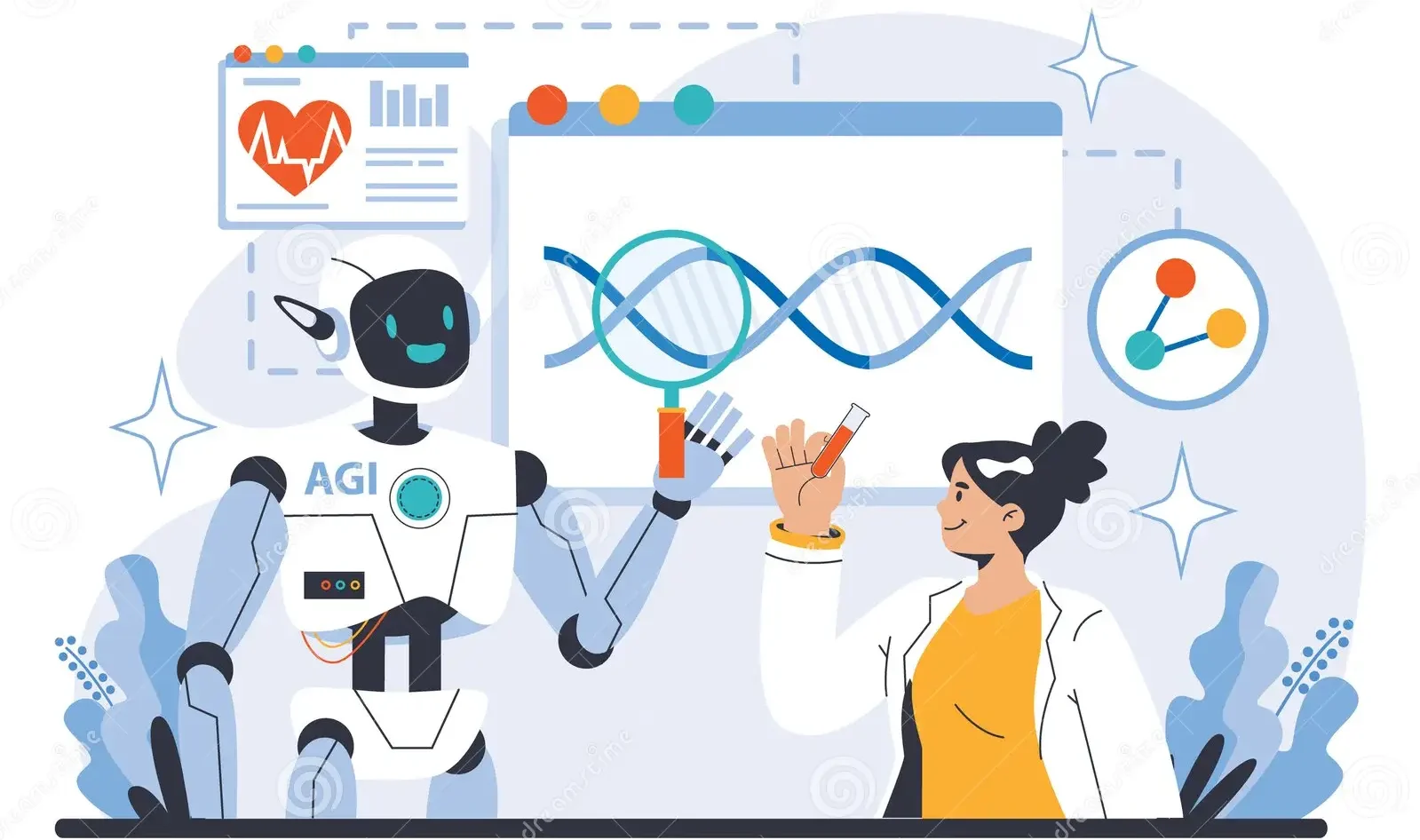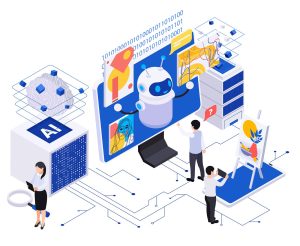Artificial Intelligence (AI) is revolutionizing the healthcare industry, offering innovative solutions to enhance patient care, streamline operations, and improve outcomes. This article explores the application of AI in healthcare, discussing its advantages, disadvantages, and providing a practical guide to managing AI projects in this sector.
Understanding AI in Healthcare

AI in healthcare encompasses the use of machine learning algorithms and other AI technologies to analyze complex medical data. The primary aim is to enhance clinical decision-making, automate administrative tasks, and enable personalized medicine. Key applications include:
- Medical Imaging: AI algorithms assist in interpreting medical images, such as X-rays, MRIs, and CT scans, aiding in the early detection of diseases.
- Predictive Analytics: AI models predict patient outcomes, enabling proactive interventions and personalized treatment plans.
- Natural Language Processing (NLP): AI processes and interprets unstructured clinical notes, enhancing patient records and supporting clinical research.
- Robotics: AI-powered robots assist in surgeries, offering precision and reducing recovery times.
- Virtual Health Assistants: AI-driven chatbots provide 24/7 support to patients, answering queries and offering medical advice.
Advantages of AI in Healthcare
- Improved Diagnostic Accuracy: AI algorithms analyze vast amounts of data, identifying patterns and anomalies that may be missed by human clinicians.
- Enhanced Patient Care: AI enables personalized treatment plans, improving patient outcomes and satisfaction.
- Operational Efficiency: Automating administrative tasks reduces the burden on healthcare professionals, allowing them to focus on patient care.
- Early Disease Detection: AI can identify early signs of diseases, enabling timely intervention and improving prognosis.
- Cost Reduction: By streamlining operations and improving diagnostic accuracy, AI helps reduce healthcare costs.
Disadvantages of AI in Healthcare
- Data Privacy Concerns: Handling sensitive medical data raises privacy and security issues that need stringent measures.
- High Implementation Costs: Developing and deploying AI systems can be expensive, posing challenges for smaller healthcare providers.
- Lack of Standardization: Variability in AI models and their interpretations can lead to inconsistencies in healthcare delivery.
- Dependence on Data Quality: AI systems require high-quality data; inaccurate or incomplete data can lead to incorrect conclusions.
- Ethical and Legal Issues: Ensuring ethical use and compliance with regulations is crucial, particularly regarding patient consent and data usage.
Tutorial: Managing AI Projects in Healthcare
- Define Clear Objectives: Establish specific goals for the AI project, such as improving diagnostic accuracy or automating administrative tasks.
- Collaborate with Experts: Involve healthcare professionals, data scientists, and AI specialists to ensure a multidisciplinary approach.
- Select Appropriate Tools: Choose AI tools and frameworks that are well-suited to healthcare applications (e.g., TensorFlow, IBM Watson Health).
- Ensure Data Quality: Collect and preprocess high-quality data to train AI models effectively.
- Develop and Test Models: Build AI models and rigorously test them in controlled environments to ensure accuracy and reliability.
- Implement Ethical Guidelines: Address ethical concerns by establishing protocols for data privacy, patient consent, and bias mitigation.
- Pilot and Scale: Start with pilot projects to evaluate the AI system’s performance before scaling up to broader applications.
- Continuous Monitoring and Improvement: Regularly monitor AI systems and update them based on feedback and new data.
Conclusion
AI is poised to transform healthcare by enhancing diagnostic accuracy, personalizing treatment plans, and streamlining operations. While there are challenges to overcome, the benefits of AI in healthcare are substantial. By following best practices and ethical guidelines, healthcare providers can effectively harness AI technology to improve patient outcomes and operational efficiency.
At KlikDot, we are dedicated to providing insights and resources on the latest advancements in AI. Stay tuned for more articles and tutorials on how AI is shaping the future of healthcare.









Tinggalkan komentar